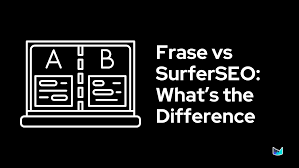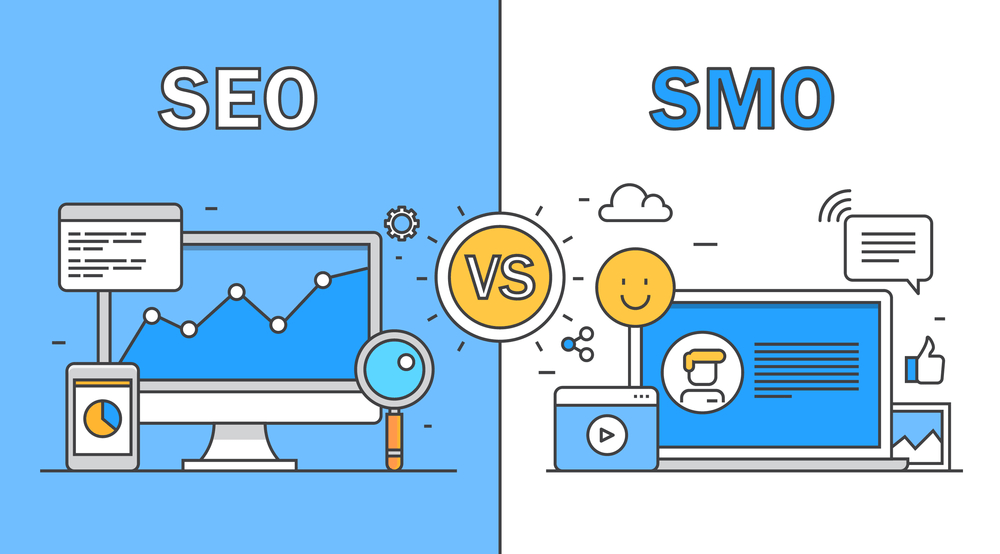The numbers tell an interesting story – 61% of businesses turn to top SEO agencies purely for their expertise.
Your choice of SEO partner carries more weight than most realize. Small to medium businesses typically spend $700-$2,500 on monthly retainers, while project costs can reach between $10,000-$50,000. Making the wrong choice could prove expensive.
The stakes are high – 70% of websites never bounce back from Google penalties within their first year. Your business’s growth and digital success depend heavily on picking the right SEO company.
The numbers paint a concerning picture. Just 46% of businesses would suggest their SEO agency to others. This disconnect between what companies expect and what they receive highlights a serious flaw in the selection process.
The right SEO partner can turn your website into a powerful growth engine that consistently brings traffic, leads, and sales. Most agencies sound alike when they talk about audits, backlinks, technical work, and content. Telling true experts from pretenders needs a trained eye.
This piece will help you review and select an SEO agency that delivers actual results instead of empty promises. You’ll learn to spot red flags that separate genuine professionals from those who might drain your marketing budget.
Define Your SEO Goals and Needs
Take a step back before you search for the best SEO agencies. SEO success starts with a clear picture of your goals. Many businesses skip this significant first step and wonder why their SEO efforts don’t work.
Clarify your business objectives
Your business goals are the foundations of an effective SEO strategy. What do you want to achieve? Higher revenue? Market expansion? More qualified leads? These broader business objectives should guide your SEO decisions.
Start by identifying your key business priorities for now and the future. Your SEO approach will depend on whether you’re launching new products, targeting specific revenue goals, or building authority in a niche market.
Your business goals need translation into measurable SEO objectives. Here are some examples:
- Your SEO goal might focus on boosting organic traffic to product pages if revenue growth is your target
- Higher rankings for specific keywords could support a new product launch
- Improved domain strength might help build brand authority
The SMART framework helps create effective SEO goals – they should be specific, measurable, achievable, relevant, and time-bound. Define exact improvement targets with deadlines instead of vague goals like “get more traffic.” This precision gives your SEO efforts clear direction and makes progress tracking easier.
Decide between local, national, or global SEO
Your business type and target audience will determine the right focus between local, national, or global SEO strategies. Each approach serves different needs with specific tactics.
Local SEO fits businesses with physical locations or those serving specific geographic areas. This strategy optimizes your online presence in local search results and targets location-specific keywords. Local SEO benefits restaurants, retail stores, and service providers like plumbers or dentists the most.
National SEO works best for reaching audiences across an entire country. Online businesses or companies operating remotely without geographic limits find this approach effective. It usually involves targeting broader keywords that have higher search volumes.
Global SEO targets international audiences. This approach requires understanding cultural nuances and search priorities across different regions. Businesses looking beyond national borders need this strategy.
Note that 60% of mobile searchers contact businesses directly through Google Business listings. A well-optimized profile becomes vital for local businesses.
Match SEO type to your business model
Your SEO approach should reflect your business structure. Physical stores or service providers with defined service areas need to prioritize local SEO to drive foot traffic and nearby customers.
E-commerce businesses selling nationwide need strong national SEO to reach customers whatever their location. Companies selling online to multiple countries must develop global SEO strategies that consider language and cultural differences.
A hybrid approach benefits many businesses. A brick-and-mortar store that sells products online might need both local SEO to attract nearby customers and national SEO for online sales.
Your SEO strategy resources should include:
- Your team’s capabilities and experience
- Technical resources and infrastructure
- Budget allocation and priorities
This assessment helps create realistic goals that line up with your capacity. The choice between local, national, or global SEO isn’t always exclusive. Understanding which approach – or combination – best supports your specific business objectives makes the difference.
Understand What the Best SEO Companies Offer
Quality SEO agencies provide complete services that do more than simple optimization. You need to know what to expect to identify agencies that deliver full solutions instead of scattered tactics.
On-page and technical SEO services
Quality SEO companies begin with a full website review. They look at your site structure, find technical problems, and fix issues that damage your rankings.
Professional agencies check:
- Title tags and meta descriptions
- URL structure and navigation
- Duplicate content issues
- Page speed optimization
- Mobile responsiveness
Technical SEO is crucial because a one-second delay in page load time can reduce conversions by 7%. Good agencies fix these essential elements first.
The best SEO companies run regular technical audits to spot new issues before they affect your performance. They solve problems and improve both visibility and user experience.
Content strategy and keyword research
Keyword research is the foundation of successful SEO. Quality agencies research what your audience searches for, not just what you think they might type.
Advanced agencies analyze:
- Search intent behind keywords
- Traffic potential and competition levels
- Long-tail keyword opportunities
- Content gaps your competitors miss
This research goes beyond simple volume data. The best agencies discover the “why” behind searches – what users want when they type specific phrases.
Top companies create content strategies based on this research. They match keywords to specific pages, write detailed content briefs, and produce materials that meet user needs. This match with search intent results in higher rankings and better qualified traffic.
Link building and authority development
Quality backlinks are among Google’s top three ranking factors. Professional SEO agencies create legitimate link building strategies that focus on quality over quantity.
After Google’s Penguin update, trusted agencies moved to white-hat link building techniques that emphasize relevance and authority. They connect with industry influencers and create content that naturally attracts backlinks.
The most effective agencies know that link building builds your brand authority and makes you a trusted voice in your industry. This approach creates lasting results that stand up to algorithm changes.
Analytics and performance tracking
Professional SEO agencies give clear, transparent reports on your campaign performance.
They track key metrics including:
- Keyword rankings
- Organic traffic growth
- Conversion rates
- Bounce rates
- Technical site health
The best agencies use analytics data to make strategic changes, not just show numbers. They analyze what works and what doesn’t, then improve your strategy.
Many top agencies use Google Analytics and Google Search Console as their main tools. They often add specialized SEO software to learn more.
Complete reporting shows how your investment creates business results. Quality agencies demonstrate measurable improvements in traffic, leads, and sales. A business increased conversions 18× through proper analytics implementation and strategy adjustment in one case study.
Understanding these core service areas helps you review whether an agency offers the complete package needed for lasting SEO success.
Evaluate the Agency’s Experience and Credibility
SEO agencies often make big promises. A deep dive into their track record helps distinguish true experts from those who just talk big.
Check case studies and client results
Previous success often indicates future performance. The best way to know an SEO agency’s capabilities is to ask them about detailed case studies of businesses like yours.
Quality case studies should include:
- Specific metrics and measurable improvements
- Timeline of the campaign and results
- Challenges faced and their solutions
- Strategies implemented
- Long-term results beyond the original gains
The portfolio deserves more than a quick glance. The numbers they present need thorough analysis. Reliable agencies show clear metrics about organic traffic growth, better conversion rates, and improved rankings for competitive keywords.
The best case studies link SEO improvements to actual business results. This connection between SEO work and revenue shows an agency understands business goals beyond rankings.
Client references provide insights that case studies cannot match. A chat with current clients reveals their communication style, how they handle expectations, and client satisfaction levels.
Look for industry certifications and awards
Certifications show dedication to professional standards, though they don’t guarantee excellence. The best agencies have team members with credentials from respected organizations.
Valuable certifications include:
- Google Analytics certification
- Google Ads certification
- SEMrush certification
- HubSpot inbound marketing certification
Awards add another layer of credibility. The US Search Awards, Search Engine Land Awards, and The Drum Search Awards recognize exceptional SEO work. Agencies with consistent wins or nominations show peer-recognized excellence.
Yet be wary of agencies that prioritize certifications over results. Some brilliant SEO professionals might not have formal certifications but deliver amazing results.
An agency’s industry standing matters. Team members who speak at major conferences, write for industry publications, or contribute to SEO communities demonstrate authority and current expertise.
Assess niche or industry-specific expertise
Basic SEO knowledge rarely suffices for specialized industries. Each sector has unique challenges, rules, and audience behaviors that shape SEO strategy.
Healthcare, legal, e-commerce, and financial services each have specific compliance requirements that shape content creation and site structure. Experience in your field helps agencies anticipate these challenges.
These questions help gage an agency’s industry knowledge:
- What percentage of their clients come from your industry?
- How do they adapt standard SEO practices to your specific field?
- Can they explain industry-specific challenges they’ve overcome?
- Do they understand your target audience’s search behaviors?
Their industry discussion reveals much. Proper terminology use and market understanding matter. Agencies that know your field spot opportunities others miss.
Industry expertise becomes vital for businesses in regulated or technical fields. Healthcare agencies must balance HIPAA compliance with engaging content creation.
The perfect SEO partner blends technical expertise with deep business understanding. This combination creates strategies that work for both search algorithms and industry requirements.
Review Communication, Transparency, and Reporting
Clear communication makes the difference between good and great SEO partnerships. Your campaign’s progress might remain unclear even with the most skilled agency if they don’t communicate well and provide transparent reports.
Ask about reporting frequency and format
Most businesses find monthly reporting most effective. This schedule provides enough time to observe meaningful progress without long waiting periods between updates. More than 50% of marketing agencies deliver monthly SEO reports to clients. This timeline helps balance temporary fluctuations while demonstrating consistent growth.
The right reporting schedule should match your decision-making needs.
Some businesses need:
- Monthly detailed reports with performance analysis
- Quarterly strategic reviews that focus on ROI and overall progress
Report format carries equal importance as frequency. Research shows (38% according to research) clients prefer static reports, while larger enterprise clients benefit from live dashboards. Many successful SEO agencies combine both approaches:
- Live dashboards give up-to-the-minute access to key metrics
- Documented reports (PDF/slides) provide expert analysis and insights
Effective reports explain the meaning behind data rather than just presenting numbers. These reports should tell your brand’s story – your starting point, current position, and future direction. You shouldn’t need to analyze results yourself since you pay them as experts.
Ensure a dedicated point of contact
Multiple agency team members communicating directly with you leads to confusion and mixed messages. The communication structure should be clear before you sign any contract.
Questions to ask during agency evaluation:
- Who will serve as your main contact person?
- What situations require specialists versus account managers?
- How should you escalate concerns?
Both sides should have a single point of contact. This approach simplifies communication and prevents misunderstandings. Projects move forward faster and problems get solved quickly with clear communication chains.
Leading SEO companies document every decision and action item with specific owners and deadlines. They send meeting summaries within 24-48 hours that include:
- Key decisions made
- Action items with deadlines
- Links to referenced documents
- Confirmation of next scheduled meeting
Gage responsiveness and clarity
Clients rank response time as the second most important agency attribute. Communication needs vary based on business and project type. Your agency should agree with you on:
- Best channels for different types of communication
- Expected response times for urgent and standard requests
Trust grows through transparency. Great SEO agencies discuss both wins and challenges openly. They tackle problems head-on and present solutions. This honest approach helps both parties adapt strategies based on current results.
The best agencies explain technical concepts clearly without excessive jargon. They help you understand why they make specific recommendations. This educational style gives you the ability to make smart decisions about your digital marketing investments.
The initial consultation reveals much about an agency’s communication style. Their responsiveness during this phase often shows how they’ll handle your account after you sign. An agency that goes silent after the first call or ignores questions likely shows their future behavior.
Understand Pricing Models and Deliverables
SEO pricing models can help you plan your budget and choose the right investment level that matches your goals. Your SEO partnership’s financial setup will affect your results and working relationships.
Compare monthly retainers vs. project-based pricing
Monthly retainers rule the SEO industry. SparkToro reports that 87% of agencies use retainer pricing, and Ahrefs found 75% of surveyed agencies follow this model. You pay a fixed monthly fee for ongoing services such as on-page optimization, content creation, and link building.
Monthly retainer prices usually range from:
- Small businesses: $500-$1,000/month
- Mid-sized businesses: $1,001-$2,500/month (most common range)
- Competitive industries: $2,501-$5,000/month
- Enterprise level: $5,000-$20,000+/month
Project-based pricing takes a different approach. You make a one-time payment for specific deliverables like technical audits, keyword research, or site optimization. This model suits well-defined tasks with clear endpoints.
Average project costs typically range between:
- Simple projects: Under $1,000
- Standard projects: $1,001-$1,500 (most common in US)
- Premium projects: $2,501+ (38% of US agencies charge this or more)
Monthly Retainer Pros:
- Steady revenue streams
- Long-term partnerships that create deeper understanding
- Continuous optimization and monitoring
- Better client retention
Project-Based Pros:
- Flexibility to meet changing needs
- Well-defined scope and deliverables
- Easier entry point for new clients
- Expert focus on specific tasks
Ahrefs data shows 40% of agencies offer multiple pricing models to meet different client needs. This mixed approach provides flexibility while keeping stable relationships.
Request a list of deliverables
Leading SEO agencies share clear deliverables during sales talks. You should ask for specific details about what you’ll receive before signing any contract.
A monthly retainer should include:
- Technical SEO audits and fixes
- Content creation or optimization
- Link building activities
- Keyword research and targeting
- Regular performance reports
- Strategy updates based on results
Project-based work varies but should outline:
- Work scope
- Completion timeline
- Success metrics
- All included assets and documents
You should also know who handles the work. Some agencies outsource key tasks, which might affect quality.
Match your budget with goals
Most companies should spend 5-10% of revenue on SEO to stay competitive. If you already invest in paid ads, adding 25% of that budget to SEO makes sense.
Pick a pricing model that fits your business goals:
- Monthly retainers work best for long-term growth and steady visibility
- Project-based pricing helps solve specific issues like technical problems or content gaps
- Hybrid models give businesses flexibility as needs change
Your SEO budget must reflect your market competition. A $3,000 budget might feel right but may not be enough to win in your industry.
Ask agencies about their success with clients at your budget level. Great SEO companies create pricing structures that match expected outcomes and adapt strategies to fit available resources.
8 Warning Signs You Can’t Ignore
Finding red flags is just as important as spotting positive qualities when you pick an SEO partner. Many businesses jump into partnerships with agencies that end up hurting their website’s performance and waste marketing budgets.
Guaranteed rankings or fast results
No good SEO company promises specific rankings. Google’s algorithm uses over 200 factors that keep changing. Any agency that guarantees “first page rankings” or “instant results” is trying to mislead you.
Good SEO takes 4-12 months to show real results. Agencies that promise quick wins often use risky tactics. These might boost rankings for a while but lead to penalties later. The largest longitudinal study shows websites hit with Google penalties take up to 2 years to recover – if they ever do.
Vague or secretive SEO methods
Quality SEO agencies are open about their methods. You should be careful if you hear phrases like “proprietary techniques” or “secret strategies.” Good companies are happy to talk about their approach without sharing client details.
Ask potential partners to walk you through their process. Their openness shows they’re confident about their work. Secretive agencies often hide black-hat techniques that break Google’s guidelines.
One-size-fits-all packages
Each business needs different SEO based on its industry, competition, and goals. Package deals that offer similar services whatever your situation show a lazy approach.
Good SEO strategies must think about your:
- Industry competitive landscape
- Current website performance
- Business objectives
- Target audience behaviors
Packages that ignore these factors rarely give you good results.
Overuse of automation tools
Automation has its place, but too much reliance on tools gives generic results. Many low-quality agencies use automated software for everything from content creation to link building.
Look for agencies that mix technology with human expertise. Ask how they handle content creation, keyword research, and outreach. Your results will look similar to their other clients if everything runs on autopilot.
Lack of transparency in reporting
Professional agencies give clear reports that show completed work and its effect. Watch out for vague updates or reports full of unexplained technical jargon – they might be hiding poor performance.
Ask for sample reports during your evaluation. These should show completed work, ranking changes, traffic growth, and conversions – not just technical metrics that don’t connect to business outcomes.
No client references or case studies
Agencies without real success stories should raise red flags. References are a great way to get proof of an agency’s claims and show they can deliver results.
Look beyond their case studies and search for independent reviews on Google Business, Clutch, or G2. No positive third-party feedback might point to performance issues.
Unrealistic pricing
Price extremes often signal problems. Cheap services usually cut corners through automated work, old techniques, or inexperienced staff. High fees don’t always mean better results.
Small businesses should expect to pay $1,000-$5,000 monthly for quality SEO services. Services under $500 monthly almost always mean subpar work that could hurt your site in the long run.
Aggressive sales tactics
High-pressure tactics like time-limited offers or big discounts make agencies look bad. Quality SEO companies don’t need pushy sales techniques – their results speak for themselves.
Watch out for too many follow-ups, fake scarcity (“we only have two spots left”), or salespeople who can’t answer technical questions. These behaviors often hide skill gaps or client retention problems.
Conclusion
Your business growth and digital success depend heavily on picking the right SEO agency. This piece explores the essential elements of finding an SEO partner that delivers real results, not empty promises.
A clear understanding of your business goals creates the foundation for effective SEO. Your specific goals and target audience determine whether you need local, national, or global SEO. Quality agencies offer detailed solutions, from technical SEO to content strategy, which helps you identify the right partners.
Experience plays a crucial role. The best agencies have relevant case studies, industry certifications, and expertise in your specific niche. Their past performance often shows what results you can expect.
The way agencies communicate makes a big difference. Great agencies provide clear reports, give you a dedicated contact person, and quickly answer your questions. They explain complex concepts without confusing jargon, making you a well-informed part of your SEO trip.
Monthly retainers and project-based models both work well for pricing. The key is to match deliverables with your budget expectations. Note that very low prices often mean poor quality work that could damage your site in the long run.
Red flags should grab your attention right away. Be wary of agencies that guarantee quick rankings, use secret methods, or apply similar strategies for all clients.
A good SEO agency becomes a valuable partner in your digital growth. You should take time, ask tough questions, and trust your gut feeling. The difference between average and excellent SEO work can turn your website from an underperforming asset into a powerful revenue generator.
Key Takeaways
Selecting the right SEO agency is a critical business decision that can make or break your digital marketing success. Here are the essential insights to guide your choice:
- Define clear SEO goals aligned with business objectives before evaluating agencies – local, national, or global focus depends on your target market and business model.
- Quality agencies offer comprehensive services including technical SEO, content strategy, link building, and transparent analytics – not just basic optimization tactics.
- Evaluate credibility through detailed case studies, client references, and industry certifications rather than relying solely on sales presentations and promises.
- Prioritize agencies with clear communication structures, dedicated contacts, and regular reporting that explains results in business terms, not just technical jargon.
- Avoid agencies guaranteeing quick rankings, using secretive methods, offering one-size-fits-all packages, or employing aggressive sales tactics – these are major red flags.
- Budget 5-10% of revenue for competitive SEO results, with monthly retainers ($1,000-$5,000) typically more effective than project-based pricing for long-term growth.
Remember that 70% of websites hit with Google penalties fail to recover within a year, making your agency choice crucial for sustainable success. The right SEO partner transforms your website into a reliable growth channel, while the wrong one can waste your budget and damage your online presence permanently.



